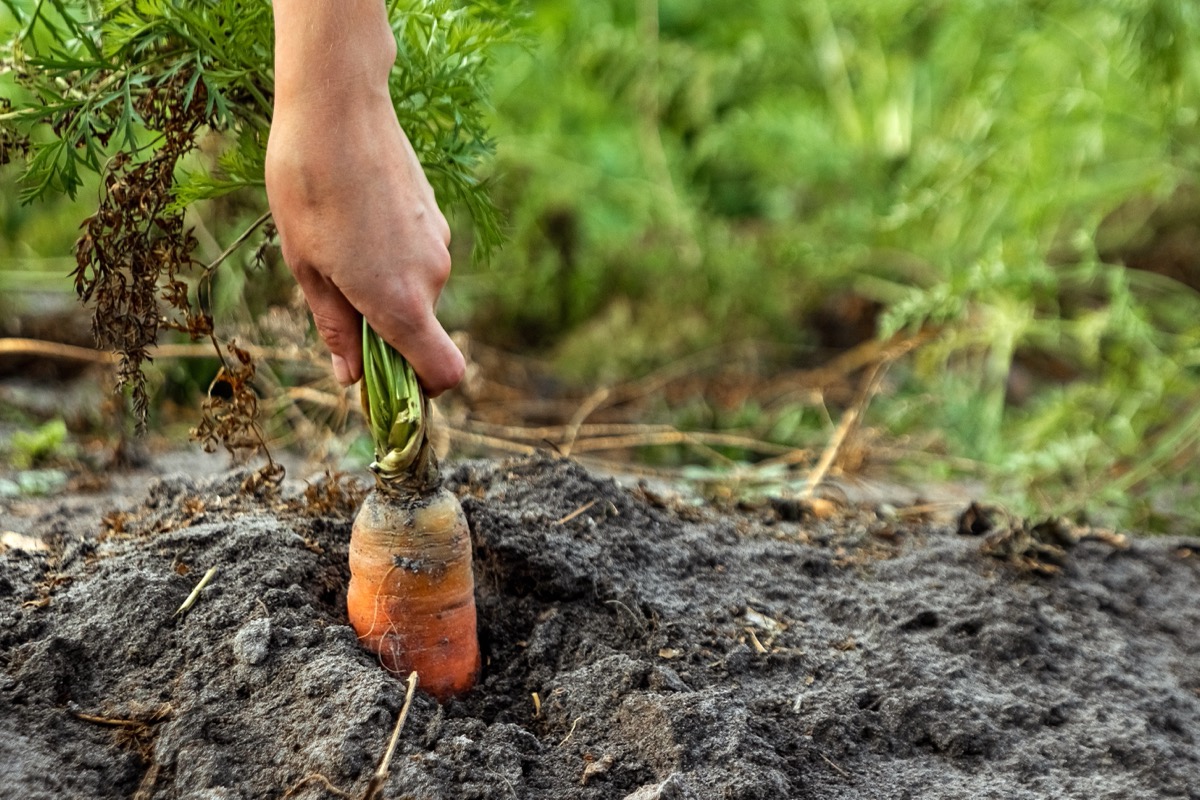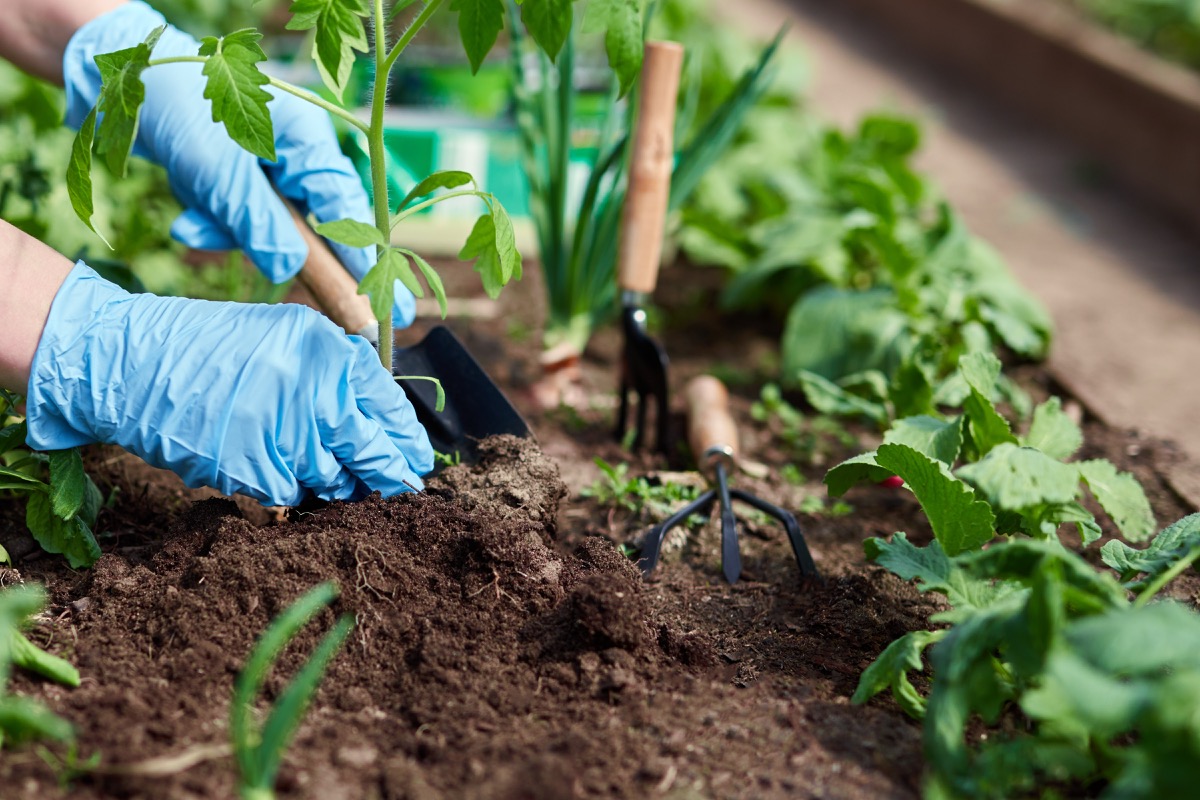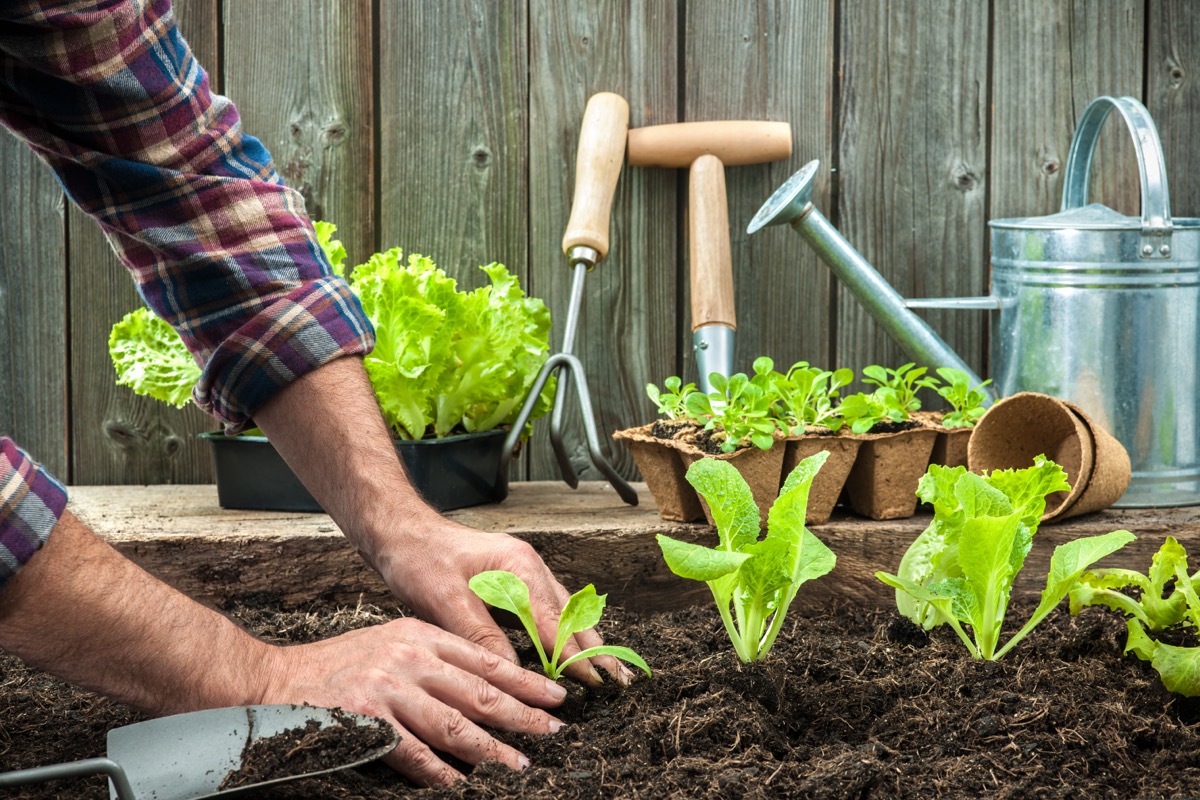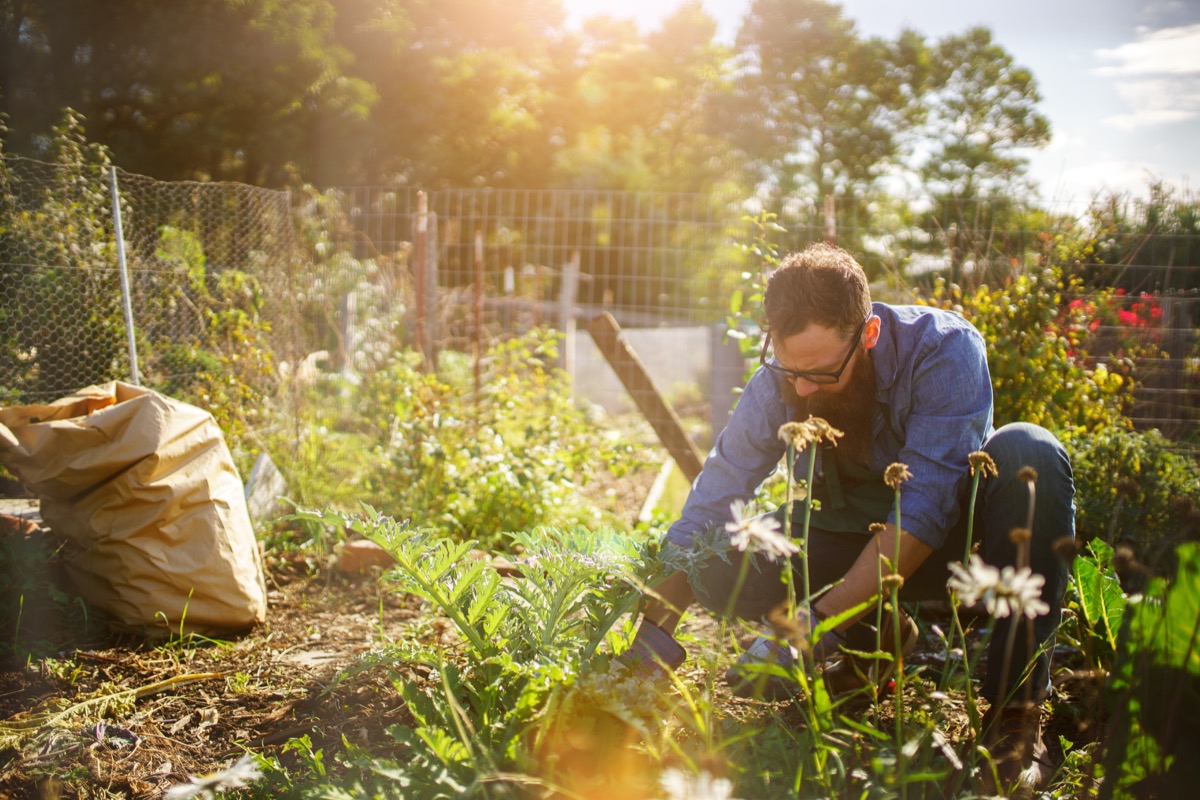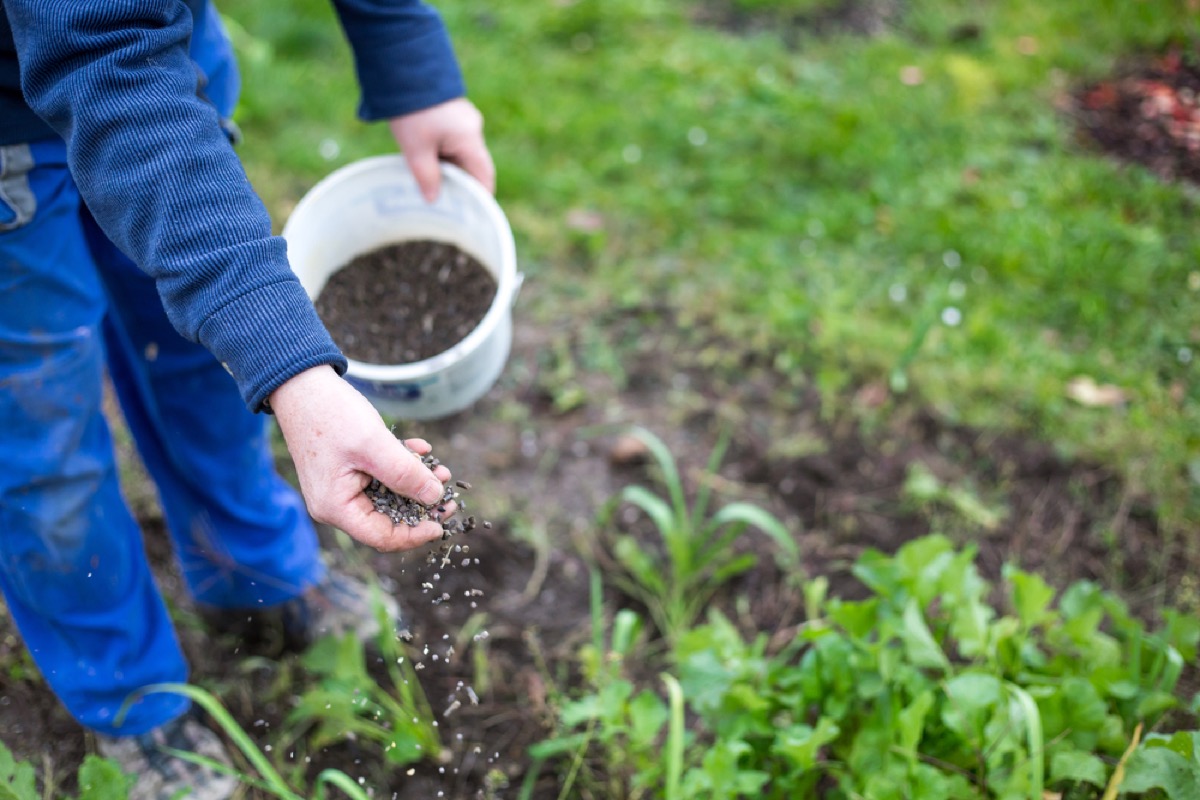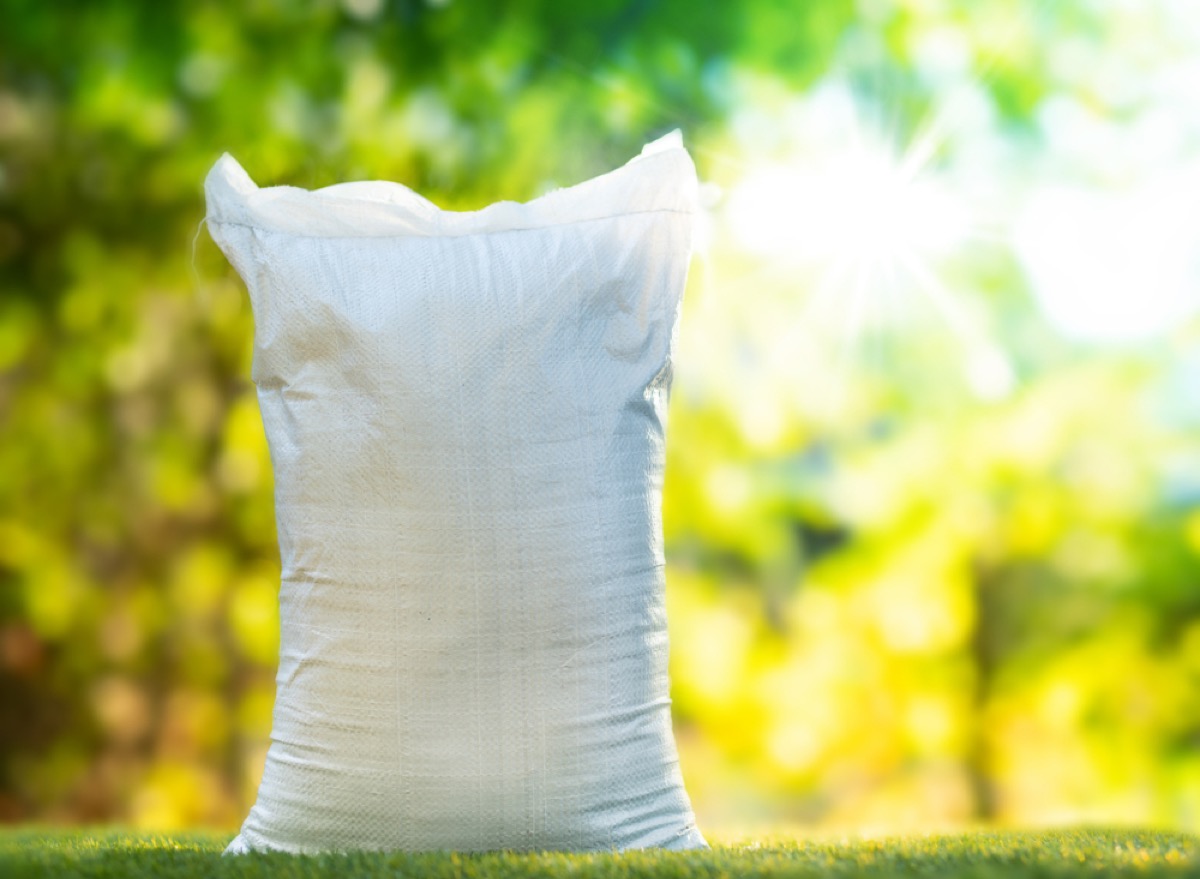The May 25 study notes that treated sewage sludge, also known as biosolids, is often used in fertilizer or compost and labeled as “eco,” “natural,” or “organic.” But researchers found that these biosolids are often laden with harmful chemicals, specifically per- and polyfluoroalkyl substances (PFAS). They’re also known as “forever chemicals” because “they build up in our bodies and never break down in the environment,” explains the Environmental Working Group. “Very small doses of PFAS have been linked to cancer, reproductive and immune system harm, and other diseases.” Placing these chemicals directly into the earth can negatively impact the environment and lead to contamination of any produce you’re planting. Gillian Zaharias Miller, PhD, senior scientist with the Ecology Center, told the Detroit Free Press that the fruits and vegetables in your garden can absorb the chemical compound as they grow. Fertilizers that contain these chemicals are sold at popular nationwide stores including Home Depot, Ace Hardware, and Lowe’s, notes the study. The researchers examined some of these common fertilizers to see if the amount of perfluorooctanesulfonic acid (PFOS) and perfluorooctanoic acid (PFOA), two kinds of PFAS, exceeded the chemical limits in Maine, the state with the “most robust action on PFAS in biosolids.” The scientists purchased nine products from eight states and Washington, D.C. and found that the chemicals in eight of the nine they tested “were measured at levels that would not be acceptable for the state’s agricultural soils.” In fact, seven of the nine fertilizers were made with 100 percent biosolids. In accordance with Maine’s guidelines, 2.5 parts per billion (PPB) of PFOA and 5.2 PPB of PFOS is considered above the safe limit. The authors note that PFOS and PFOA—along with PFHxS—are in the process of being “phased out of commerce under the global United Nations Stockholm Convention, but thousands more are commonly used in a variety of consumer and industrial products.” To see which eight fertilizers were found to have unacceptable levels of PFOS and/or PFOA, read on. RELATED: The One Thing You Shouldn’t Plant This Spring, Local Officials Warn. PFOA: 0.67 PPB (under limit) PFOS: 8.66 PPB (exceeds limit) Percent biosolids: 100 percent Where the study authors purchased it: Home Depot PFOA: 1.01 PPB (under limit) PFOS: 9.05 PPB (exceeds limit) Percent biosolids: 100 percent Where the study authors purchased it: Menards RELATED: If You Use This to Grow Your Garden, You Could Get Salmonella, Experts Say. Note: Researchers analyzed two samples from a single bag of GreenEdge fertilizer. PFOA of the first sample: 1.39 PPB (under limit) PFOS of the first sample: 13.5 PPB (exceeds limit) PFOA of the second sample: 1.66 PPB (under limit) PFOS of the second sample: 12.9 PPB (exceeds limit) Percent biosolids: 100 percent Where the study authors purchased it: Home Depot PFOA: 0.94 PPB (under limit) PFOS: 14.9 PPB (exceeds limit) Percent biosolids: 85.5 to 91.5 percent Where the study authors purchased it: Lowe’s PFOA: 1.2 PPB (under limit) PFOS: 16.9 PPB (exceeds limit) Percent biosolids: 100 percent Where the study authors purchased it: Home Depot RELATED: For more up-to-date information, sign up for our daily newsletter. PFOA: 2.75 PPB (exceeds limit)ae0fcc31ae342fd3a1346ebb1f342fcb PFOS: 17.3 PPB (exceeds limit) Percent biosolids: 100 percent Where the study authors purchased it: York Woods Tree & Products in Eliot, Maine PFOA: 7.51 PPB (exceeds limit) PFOS: 7.92 PPB (exceeds limit) Percent biosolids: 50 percent Where the study authors purchased it: Ace Hardware PFOA: 23.8 PPB (exceeds limit) PFOS: 22.1 PPB (exceeds limit) Percent biosolids: 100 percent Where the study authors purchased it: W.S. Jenks & Sons in Washington, D.C. RELATED: This Home Necessity Is Disappearing From Store Shelves.
